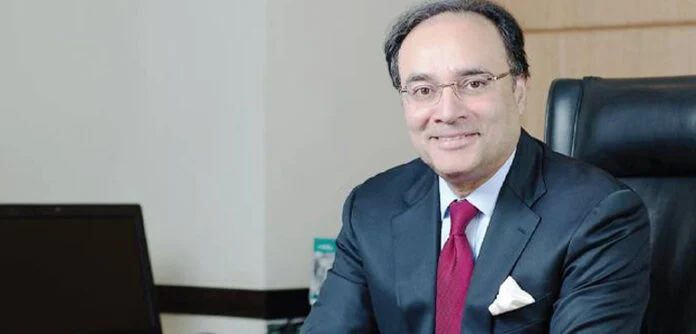
43 percent economic sectors contribute less than one percent tax
Pakistan’s tax collection body generated $5.2 billion in July-August, falling short of its $5.6 billion target
ISLAMABAD ( WEB NEWS )
Federal Minister for Finance and Revenue Muhammad Aurangzeb on Tuesday highlighted that 43 percent of the sectors in Pakistan’s economy pay less than one percent of the total tax collected, urging wholesalers, distributors and retailers to improve their contributions.
Pakistan’s narrow tax base and persistent tax evasion issues lead to insufficient revenue collection for the country’s fragile economy each year. The shortfall exacerbates the government’s tendency to run a high fiscal deficit, often financed through domestic and international borrowing, which increases the nation’s debt burden.
The country’s top tax collection body, the Federal Board of Revenue (FBR), collected Rs1.455 trillion ($5.2 billion) in July-August against the projected target of Rs1.554 trillion ($5.6 billion), according to provisional figures compiled officially over the weekend.
“43 percent sectors of this economy pay less than one percent tax so we have to make a collective effort and request these sectors to contribute otherwise we will keep going to the IMF [International Monetary Fund] for more [loans],” the finance minister said.
“Wholesalers, distributors, retailers we request you again to make a move to contribute to the country’s economy,” he continued. “We request them to help us.”
The minister made it clear the tax imposed on these sectors would not be withdrawn, pointing out that such a step would create more problems for the salaried class and manufacturing sector.
Pakistan has set a challenging tax revenue target of Rs13 trillion ($46.66 billion) for the current fiscal year, nearly a 40 percent increase from the previous year, to strengthen its case for a new bailout deal with the IMF.
The South Asian nation’s new administration has also decided to digitalize the tax collection system to prevent leakages, even as a large segment of the national economy remains undocumented.
Aurangzeb highlighted his commitment to cutting down the size of the federal government, adding that a method was being followed in which six ministries were initially chosen, of which two would be abolished.
However, he did not specify which ministries he was referring to.
“There will also be a reduction in the number of officers from grade 17 to 22,” he added. “We are closing the entities and departments that can be shut down.”
The minister said once the implementation of “rightsizing” the initial ministries was completed, the government would address the next five ministries and continue the process.
He also mentioned that remittances had remained at an all-time high in recent months, and highlighted that rating agencies Fitch and Moody’s had also upgraded Pakistan’s ranking by one notch.
Federal Minister for Finance and Revenue, Senator Muhammad Aurangzeb, held a meeting with Mikko Keto, the Global CEO of FLSmidth, a leading global provider of engineering and equipment for the mining and cement industries.
The meeting was also attended by Jakob Linulf, Ambassador of Denmark, alongside senior officials from FLSmidth and the Finance Division.
During the meeting, the Finance Minister emphasized Pakistan’s strategic shift towards an export-led growth model aimed at ensuring sustainable economic development across various sectors. He also highlighted the government’s ongoing efforts in the form of comprehensive reforms in the energy and power sectors, privatization of state-owned enterprises, and restructuring of the tax system and public expenditure.
Senator Muhammad Aurangzeb underscored the government’s commitment to facilitating private sector-led growth, with the state focusing on creating a business-friendly environment. “We are determined to pursue our change agenda despite resistance from those favoring the status quo. The private sector must lead the way, and our role is to ensure maximum facilitation,” he added.
Mikko Keto, the Global CEO of FLSmidth, expressed his appreciation for the support provided by the Government of Pakistan and shared insights into the company’s growing presence in the country. He highlighted FLSmidth’s increased investment in Pakistan’s mining sector, which has led to enhanced local value addition, increased taxation contributions, and the creation of employment opportunities for locals. “We have a comprehensive understanding of the mining potential in Pakistan, and we are keen to explore further investment opportunities through local partnerships and collaborations,” stated Mikko Keto.
The Finance Minister assured the delegation of Pakistan’s dedication to providing a favorable and conducive investment climate for foreign investors.
The meeting concluded with both parties expressing a strong commitment to strengthening the economic ties between Pakistan and Denmark, particularly in the mining and cement industries, which hold significant potential for growth and development.

